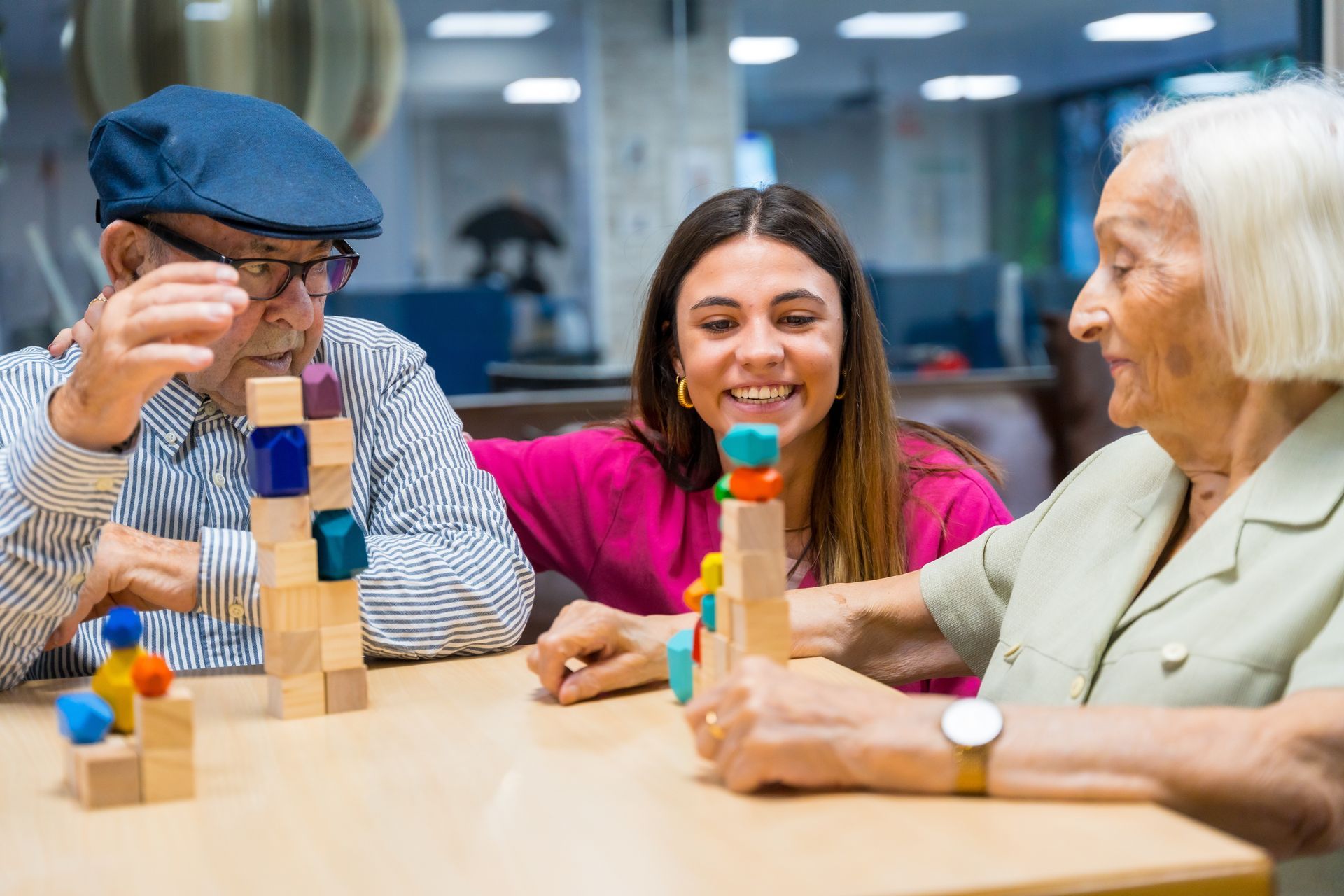BLOG
How Assisted Living Improves Quality of Life
Moving to an assisted living community is not the end for an older adult—instead, it can be the beginning of a whole new chapter of independence, peace of mind, and enjoyment. In fact, for many, the assisted living quality of life isn’t just good, it’s excellent! Here are some reasons why.
Much to look forward to: assisted living quality of life
Assisted living offers more freedom from everyday worries and more reassurance about the future, but there are even more ways that assisted living quality of life can be better than life at home:
• Mealtimes are a pleasure again. Moving to assisted living offers your loved one the pleasure of dining on delicious, nutritious food skillfully prepared and served by a pleasant wait staff. Plus, if eating alone has become tiresome, they’re in luck. Most assisted living settings feature a gracious, comfortable dining room that’s perfect for sharing a meal with a friend.
Even better, in residential home living such as that at Assured Senior Living, residents eat family-style and are able to participate in setting the table and putting the meal together. It’s a great way to build a community spirit and it makes everything taste even better!
• A comforting sense of safety and security. There’s nothing good about not feeling safe. For many older adults living alone at home, what once was a familiar neighborhood now might feel threatening or unfriendly.
The assisted living quality of life means on-site security 24/7, and that means no stranger at the door at midnight or unwanted visitors soliciting anything. It also means the confidence of living in an environment designed specifically for senior safety, with one-level living, wider hallways and safety features in the bathrooms.
• Removes stress and worry from family visits. When you’re concerned about your loved one, whether it’s their diet, mobility, health, or overall wellbeing, you tend to slip into caregiver mode. Instead of relating to your mom or dad as their son or daughter, you become another person checking up on them. It’s understandable; you simply want the best for them.
Once they are enjoying the assisted living quality of life, that all changes. Now, you’re able to be their adult child again, and your visits can be filled with laughter and activity because you know they are receiving the care they need—and they are free to truly enjoy life again. It’s a true win-win.
• Provides a sense of belonging and community. Having a reason to get up each morning is of huge importance for anyone, especially for an older adult who is no longer working or taking care of a family. In fact, research tells us that can keep a person’s brain active and help prevent cognitive decline. Other benefits are reduced risk of heart disease, stroke, and other cardiovascular ailments. Having a sense of purpose has even been linked to increased longevity.
In assisted living, there’s always a reason to rise and shine. It might be a birthday party. Special outing to a local museum. A concert by a local chorale visiting the community. Or just good conversation with a friend. It all makes for good health, and a good way of life.
• Ongoing monitoring helps prevent illness. Thanks to ongoing monitoring by a professional staff, residents in assisted living can go about their days knowing that they are not alone if they have any changes in health. That means a sniffle or a change in eating habits won’t go unnoticed; staff will be close by to take the necessary steps needed to help each person avoid ailments whenever possible.
• Time can be spent on happiness and health. Maybe the biggest benefit of the assisted living quality of life: being free to embrace friendships, activities, learning, wellness, hobbies and so much more. With all the pesky details of everyday life handled for them, your loved one is free to fill their time as they please.
And at Assured Senior Living, that means receiving the best of everything.
Contact us today, or download our free Family Decision Toolkit guide for more information.















